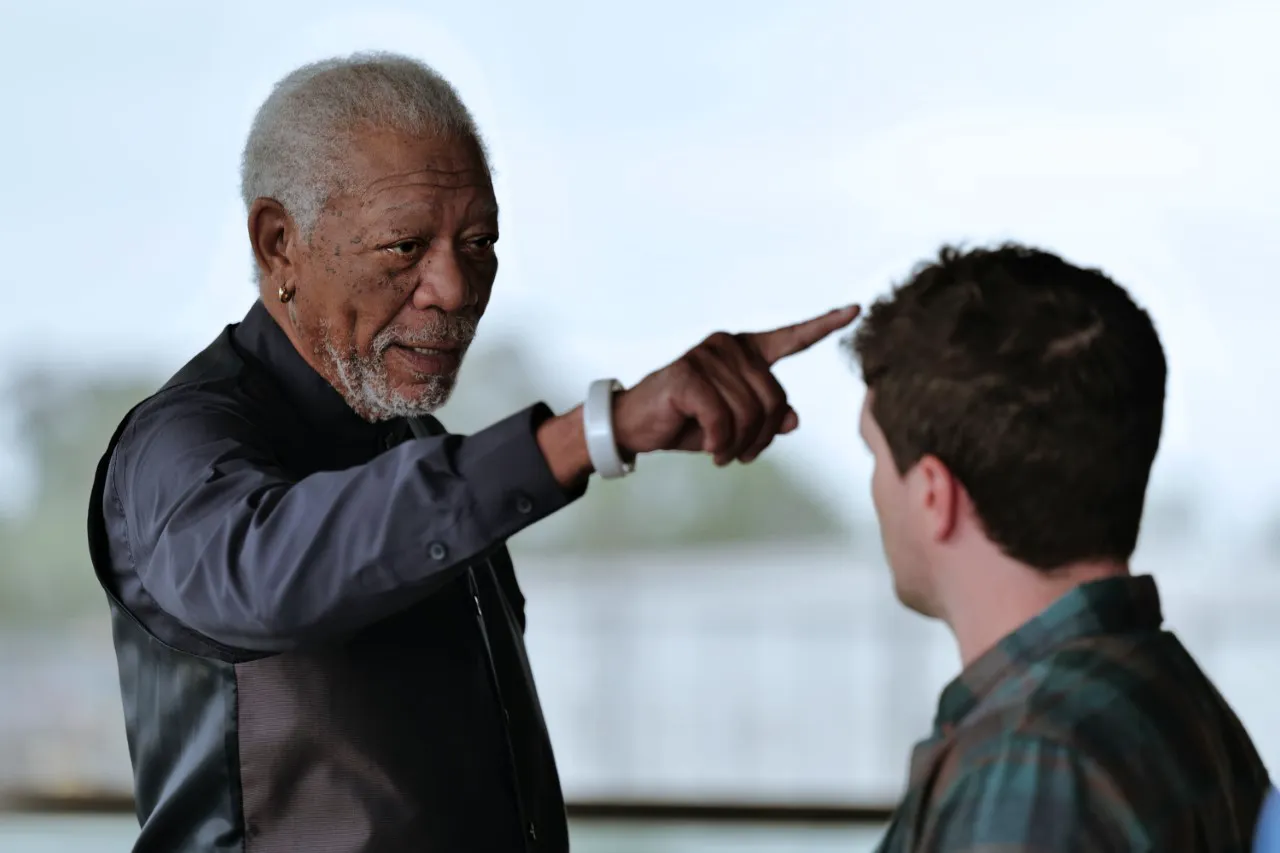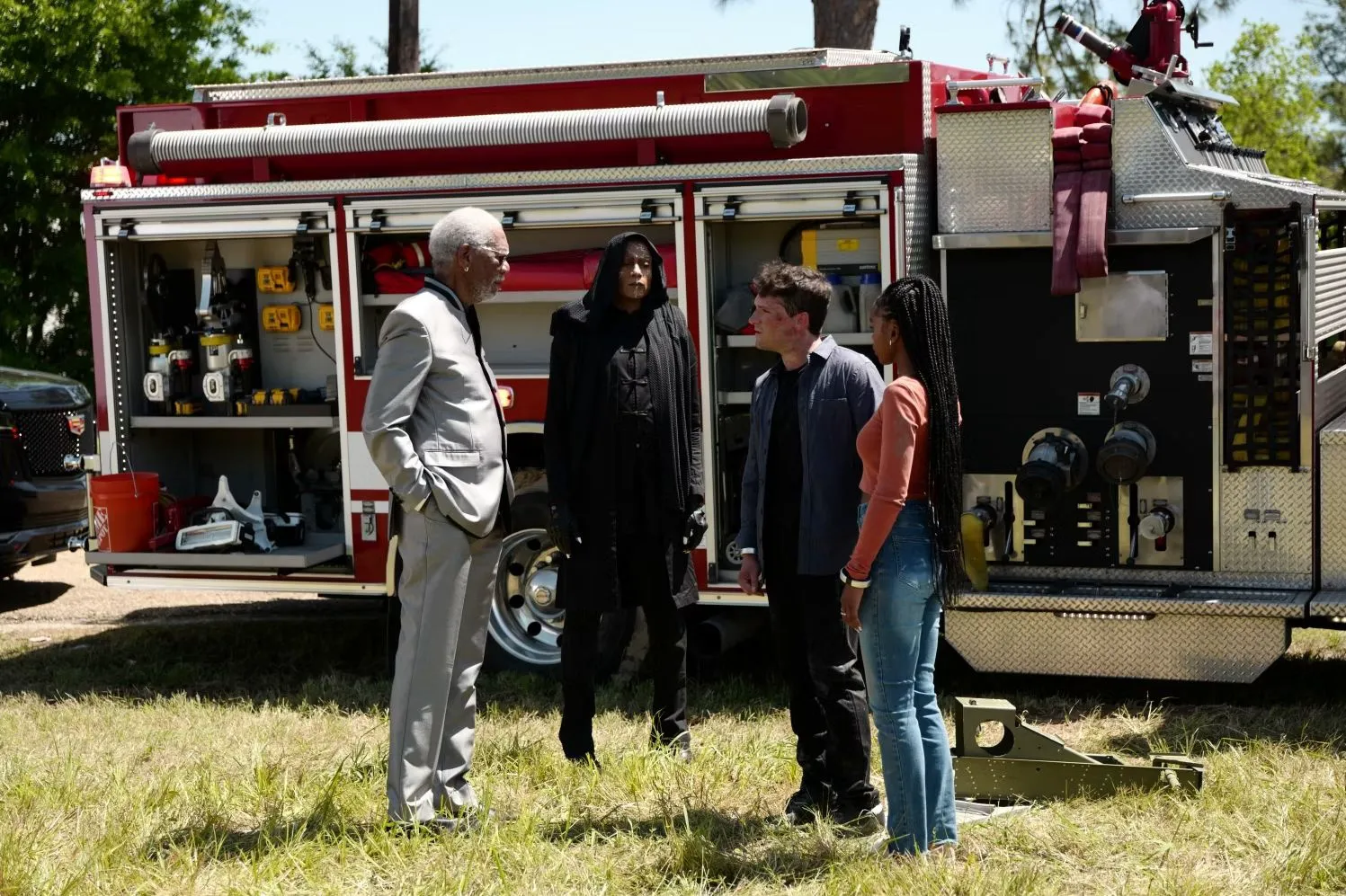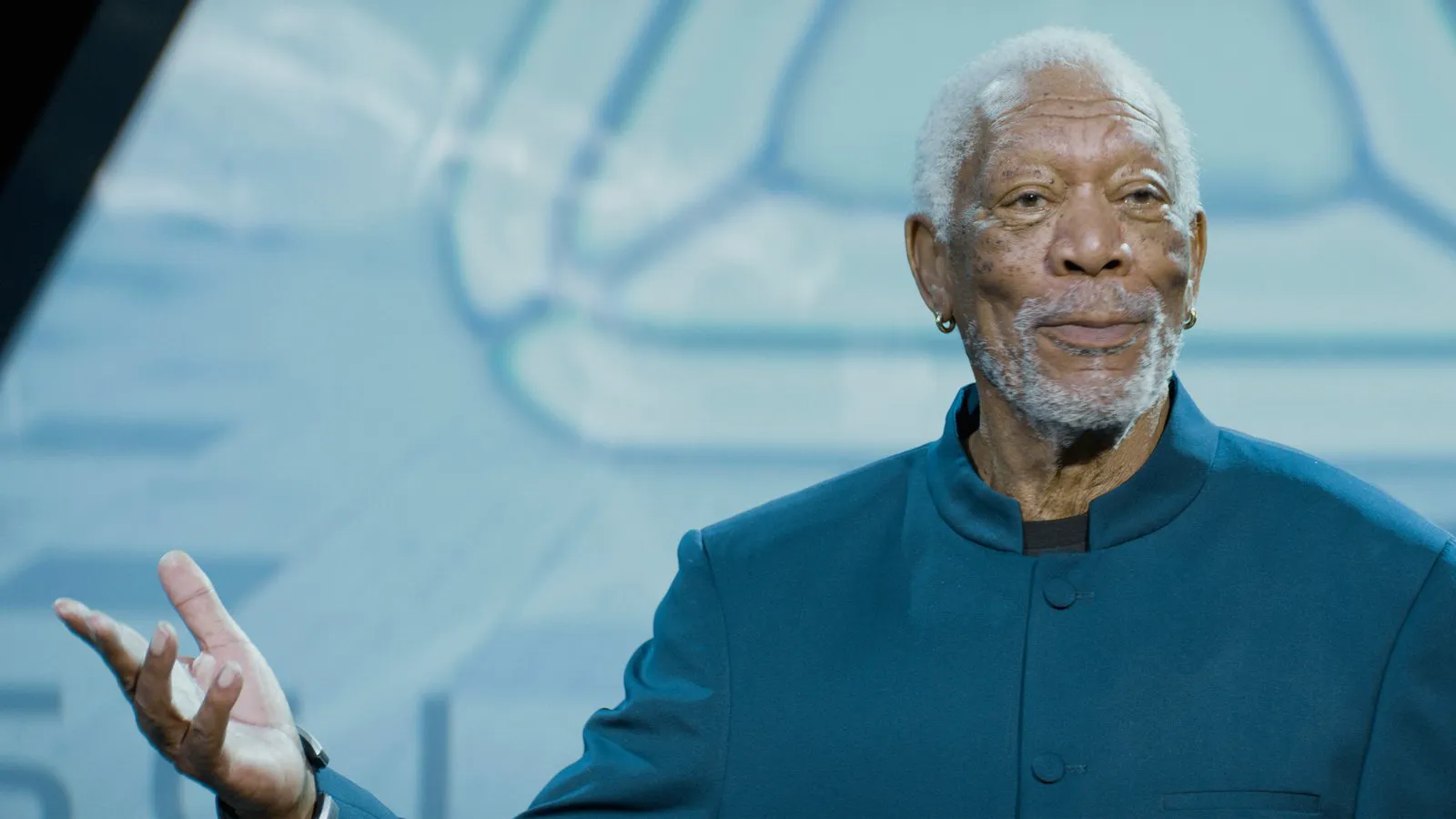Franklin (Josh Hutcherson) scrapes by writing articles about medicine and runs his own blog under the pseudonym Antidote. Dreaming of interviewing Anton Burrell (Morgan Freeman), a biotechnology guru, he sneaks into the presentation of his new gadget — yet another update to a bracelet that cures, if not all, then a great many diseases. There, Burrell is attacked, and Franklin saves him. In the chaos, the hapless interviewer picks up his idol’s ring, and it changes his whole life. One press of the ring, and you can go back 57 seconds.

Morgan Freeman in a still from “57 Seconds”
Director Rusty Cundieff, despite nearly thirty years of experience in the profession, is practically unknown to the viewer. Crawling from third-rate series to Christmas TV movies, occasionally distracted by horror anthologies, Cundieff left his last conditionally “auteur” films in the early 1990s and has not returned to projects intended for the big screen since. And, of course, his new film, “57 Seconds,” is a purely producer-driven creation without a gram of originality. And yet, the film is not boring, thanks to Macon Blair, one of the co-writers of the screenplay — a Sundance winner with “I Don’t Feel at Home in This World Anymore,” the man responsible for the cult-favorite “Room 104,” the misunderstood “Hold the Dark,” and the upcoming remake of “The Toxic Avenger.” Probably, even on a frankly craft-based project, Blair couldn’t help but put in some effort.

Josh Hutcherson as Franklin in a still from “57 Seconds”
Time-bending Without Consequences
The main feature of “57 Seconds” seems to be that, unlike most films about time travel, the hero does not experience any negative consequences. All instances of “rewinding” are beneficial. He doesn’t get confused, doesn’t split into multiple versions of himself, he simply returns to the past with the knowledge of what will happen in the future. In a way, it’s wonderful; here they are — the time travels that everyone dreams of, without unnecessary moralizing. But, accordingly, the film is not about rewinding the clock, but about fighting a large and evil corporation, “Big Pharma,” and manipulating time is just a side tool here.

Morgan Freeman in a still from “57 Seconds”
Performances and Pacing
Josh Hutcherson, known to many as Peeta Mellark from “The Hunger Games,” perfectly plays the awkward fighter for justice, the extremely aged Morgan Freeman repeatedly portrays God, there is also the ideal girlfriend of the main character, Jala (Lovi Simone), and an exemplary villain (Greg Germann). The motivations of each are extremely schematic: to avenge a sister, to find a successor, to earn more money — anything could have been said. It is much more important that the film maintains its pace, not descending to the level of Benny Hill-esque running around, but also not stopping for lengthy monologues about responsibility for anything.
It is thanks to the once-set rhythm (and Hutcherson’s charisma) that you don’t have time to think about plot holes, or that all this has been done somewhere before, or to wonder why the film was made at all. And even the explanation of the ring’s operation with “quantum physics” is not annoying. From location to location, from one small discovery to another — that’s how an hour and a half flies by. They begin with a dynamic cold open scene: the viewer is placed in a falling plane. Maintaining the bar for the next 90 minutes is not easy, but the authors cope.
Final Thoughts
The film, whose entire background screams that it was shot by a neural network for streaming, ultimately turns out to be a solid genre spectacle. Of course, not outstanding in the slightest, but if the producers had put in a little more effort and spent money on advertising, it would have been an ideal niche audience hit, on par with the simultaneously striding across the Internet “Totally Killer,” for example.